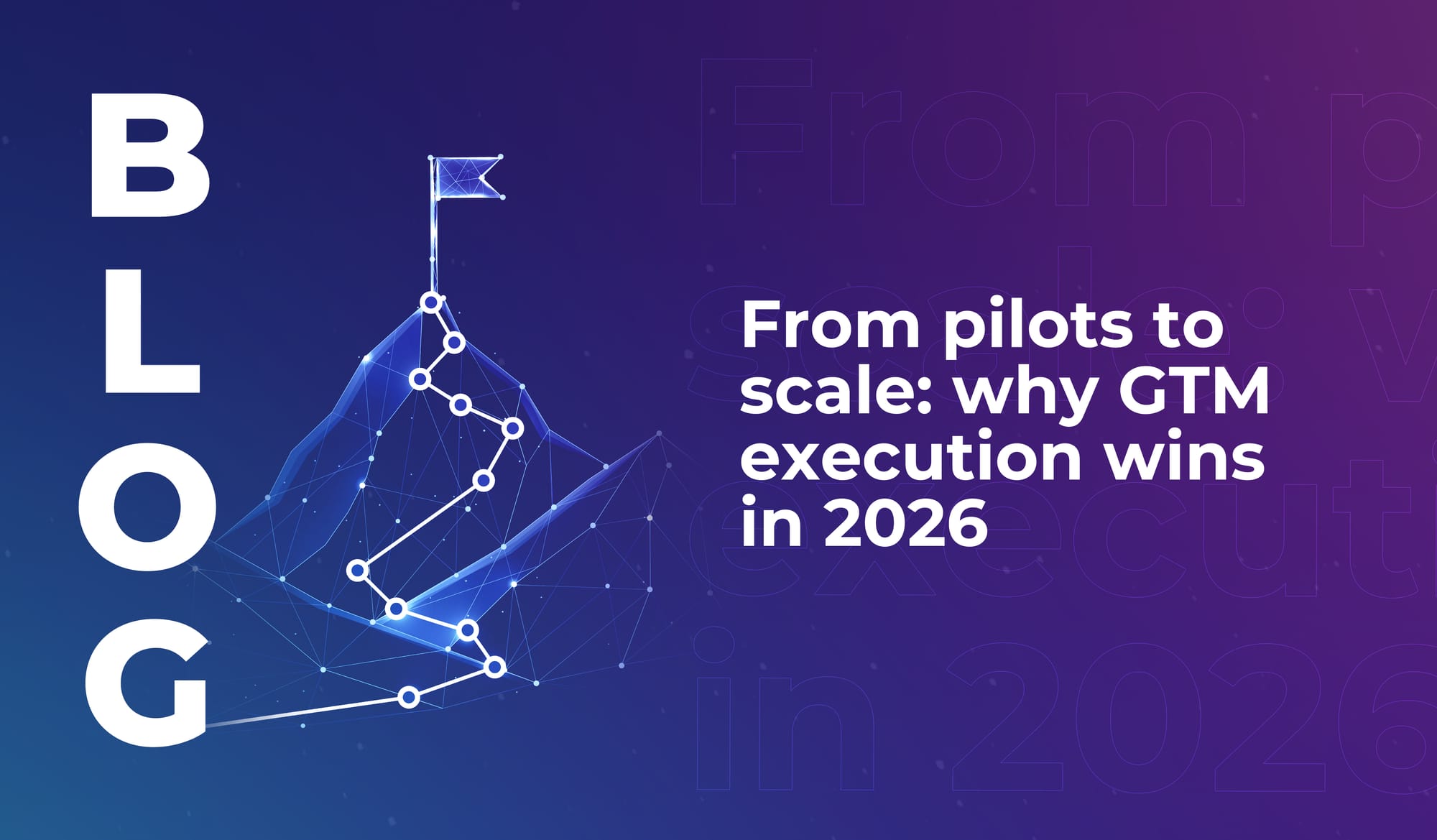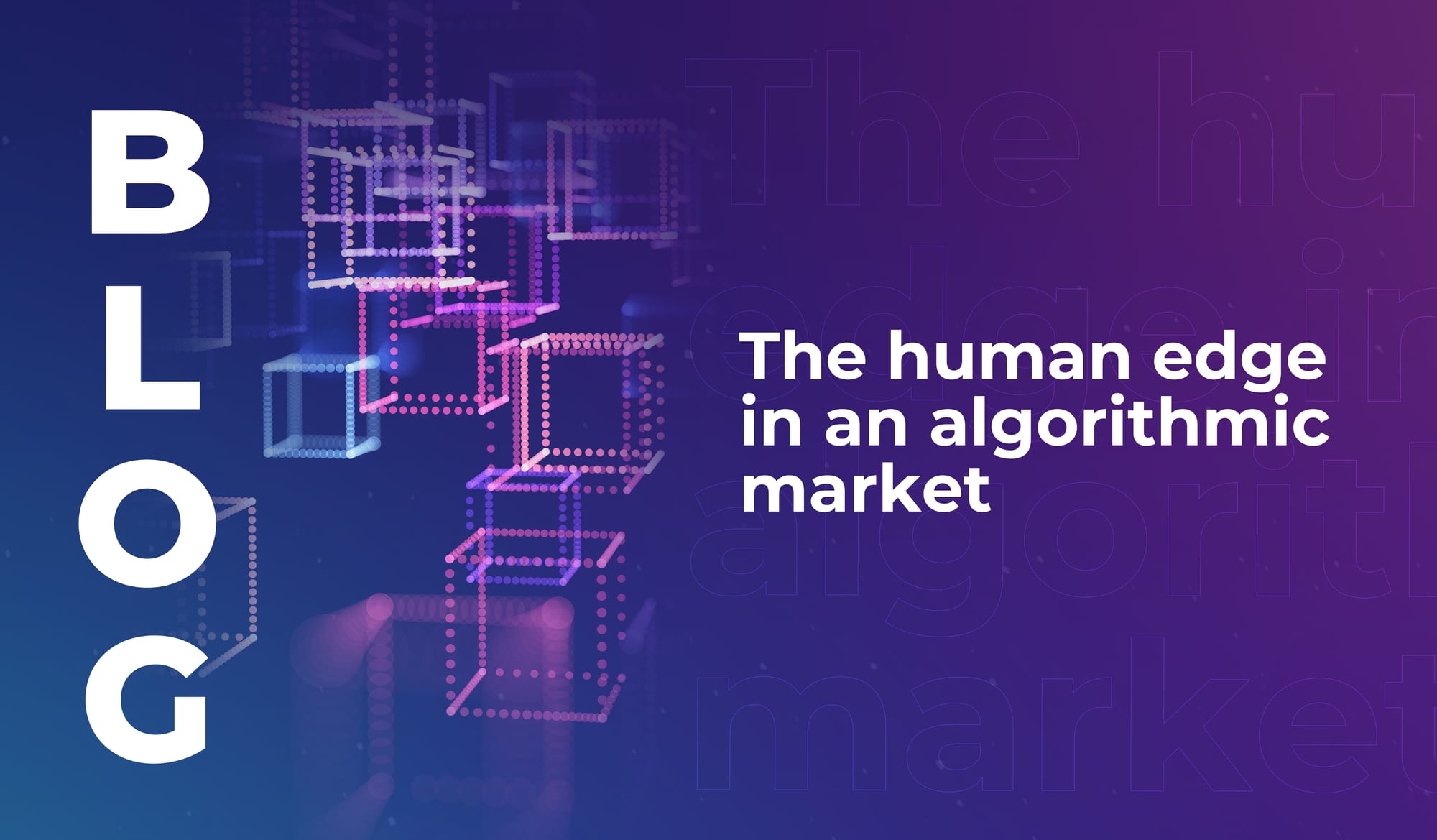
From pilots to scale: why GTM execution wins in 2026
Why 2026 is the year startups have to move beyond pilots. New research shows go-to-market execution, not demos, is the real growth advantage.


Algorithms can filter, but humans can feel. And tech investors need to leverage both to build resilient portfolios in today’s market.
Automated sourcing and data-driven due diligence mean venture capital has never been more digital. There are immense benefits to this; but a growing body of research shows that more investors need to recognise the limitations of algorithmic investing.
A 2025 report from McKinsey found that private equity deal value rose 14% (reaching around USD $2 trillion) last year. But venture capital recorded the steepest decline in both deal count and value across private-market asset classes. There’s still record dry powder, but fewer deals being made – suggesting that investors are pausing to think before they jump.
At the same time, corporate VCs have slowed their pace. A report from Silicon Valley Bank on the state of corporate venture capital (CVC) this year notes that firms are making fewer but more targeted investments, favouring strategic alignment and deeper partnerships over volume.
So it seems that the human edge is becoming sharper.
When we interviewed past LEAP speaker Vusi Thembekwayo (Investor and Managing Partner at MyGrowthFund Venture Partners) for the blog, he shared why the edge has, for him, always been personal. His team backs African founders with mentorship as well as money.
“I prioritise immersive research and building relationships to identify valuable opportunities,” he said; and added that “by engaging with industry experts and continuously educating myself, I can filter out the noise.”
That word, ‘noise’, points to the problems many investors now face: an ocean of deal dashboards, pitch-deck analytics, and algorithmic leads that all lead to the same companies at the same time. And in the middle of all that noise, real differentiation has to be found through human insight.
MAGNiTT’s report on VC trends in emerging venture markets notes that MENA startups raised $1.5 billion across 310 deals in the first half of 2025 – a 4% increase on the same period in 2024.
Saudi Arabia accounted for $860 million across 114 deals, capturing 56% of total regional funding. Nearly 89% of those Saudi transactions were early-stage.
This is important because early-stage investing isn’t where algorithms excel. It’s where relationships do. When data is minimal and context matters, investors who know the people behind the pitch (and the local market dynamics) can see potential that others miss.
As Thembekwayo put it:
“It’s not just about the money. It’s about building relationships, understanding the entrepreneurial journey, and being a supportive partner.”
In regions where deals are built on trust, relationships remain a critical element of your investment strategy. And that’s one factor behind the strength of startup investments in Saudi Arabia at a time when around the world, early-stage investments are lagging behind more established companies.
Empathy and mentorship are often described as soft skills. But McKinsey’s data shows that top-performing general partners are spending more time on the ground – meeting founders, understanding regulations, and building conviction through firsthand insight.
Thembekwayo said “Good VCs are mentors and advisors who provide guidance and resources to help founders succeed – we’re not just financiers.”
And in markets that move fast but evolve unevenly, that mix of emotional intelligence and operational understanding is proving more valuable than ever.
Like many of the leading investors we meet at LEAP, Thembekwayo’s philosophy goes beyond ROI: he told us that while financial returns are vital, “investing in people and their growth helps contribute to a more equitable economy.”
Instead of being idealistic, we think this is pragmatic, and rooted in hard truths; because in volatile markets, teams that trust their investors weather downturns better. Relationship capital compounds.
MAGNiTT’s regional data show that, in spite of macro uncertainty, early-stage activity in the GCC region continues to expand, fuelled by founder/investor relationships and sovereign-backed partnerships. It’s a pattern that can be seen around the world: where human networks are strongest, capital is stickier.
When algorithms are bringing up the same opportunities, independent conviction becomes more valuable. As Thembekwayo said, investors have the opportunity to shape the future; and that opportunity is found in dialogue. It’s found in the conversations that happen in the field, at accelerators, or across the table at events like LEAP, where investors still look founders in the eye before deciding to back them.
So to grow your conviction as an investor in a noisy market, re-invest in proximity. Be present in the markets you back. Data can travel fast, but insight takes time and care to build.
The investors who will outperform over the next few years are the ones building the best relationships. That’s why we’re curating connections at LEAP 2026 – to help you put the human edge back at the heart of your investment strategy.

Why 2026 is the year startups have to move beyond pilots. New research shows go-to-market execution, not demos, is the real growth advantage.

Three practical, expert lessons on why startups fail – and how business models, regulation and adoption unlock real tech value.

After years of acceleration, tech is entering a more selective phase. In 2026, progress won’t be measured by how much you do – but by how clearly you choose.

Why 2026 is the year startups have to move beyond pilots. New research shows go-to-market execution, not demos, is the real growth advantage.

Three practical, expert lessons on why startups fail – and how business models, regulation and adoption unlock real tech value.

After years of acceleration, tech is entering a more selective phase. In 2026, progress won’t be measured by how much you do – but by how clearly you choose.